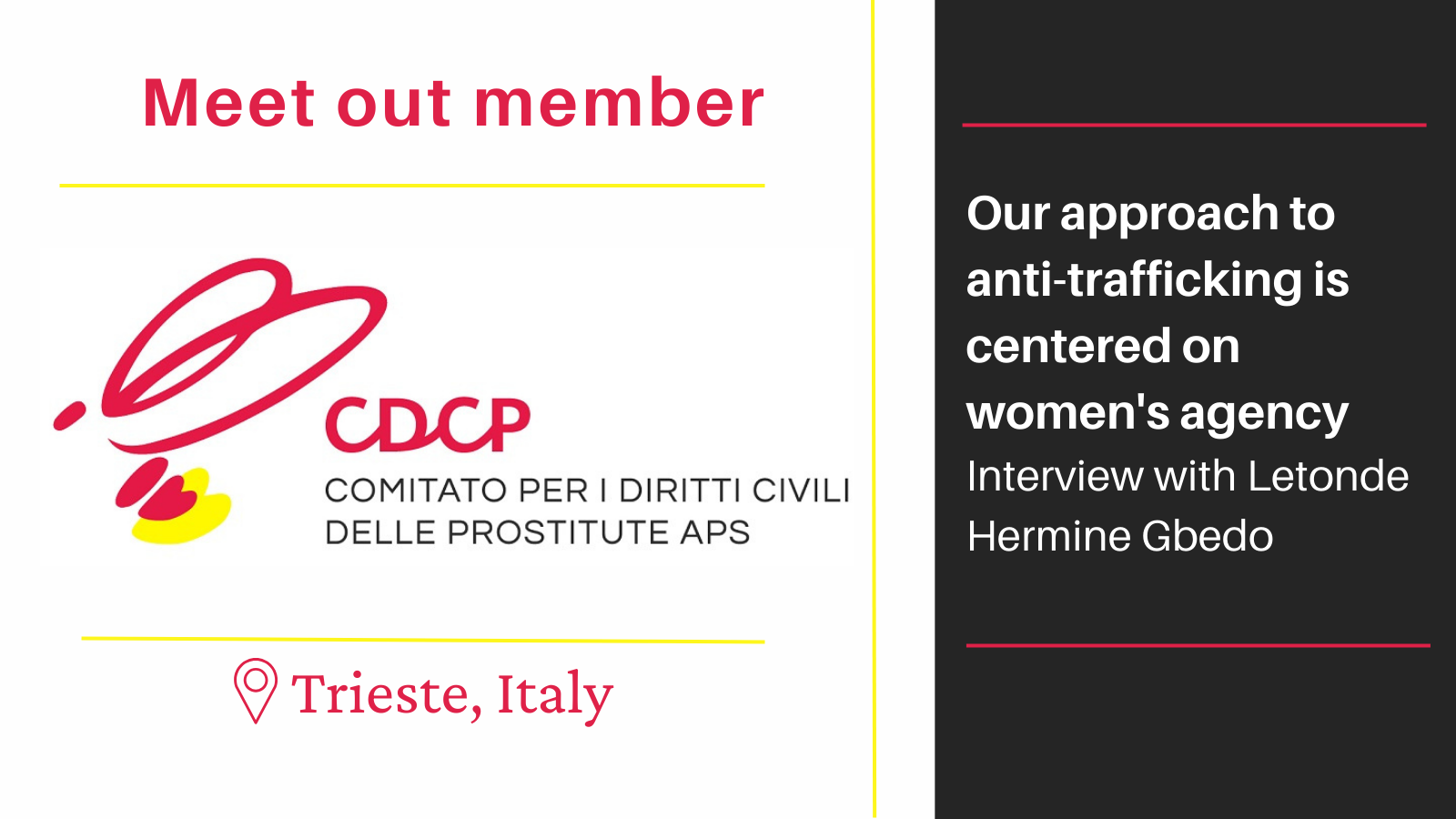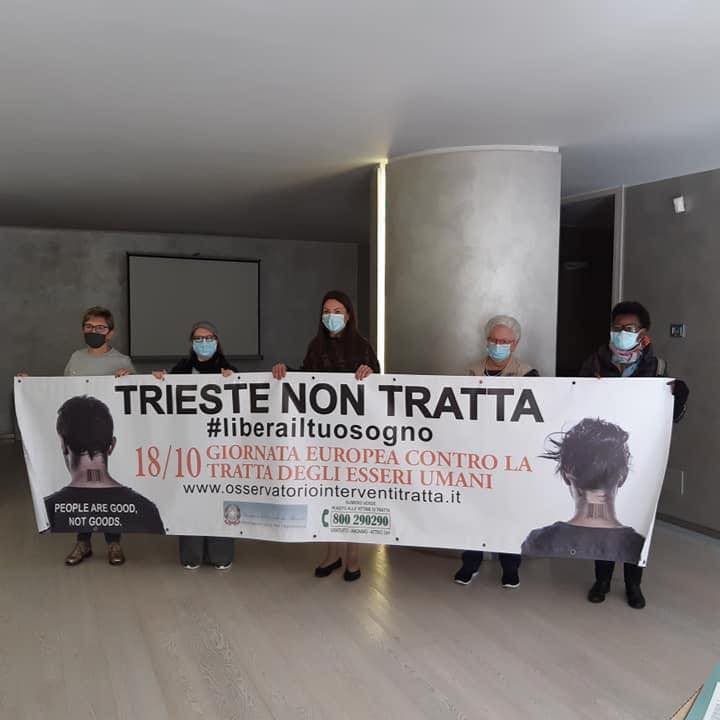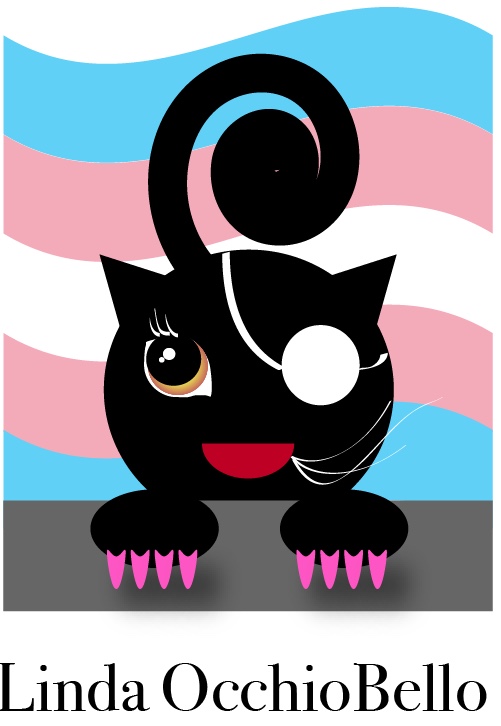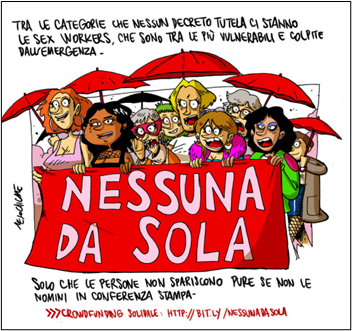
Comitato per i Diritti Civili delle Prostitute aps (CDCP ApS) is a member of GAATW in Trieste, Italy. In April 2023, GAATW spoke to Letonde Hermine Gbedo, Coordinator at COMITATO, to learn more about the history and current work of the organisation.
GAATW: How and why was CDCP ApS founded?
H: Before CDCP ApS was founded, we had been involved in activism since 1982. We advocate for the recognition of the human, social and labour rights of sex workers on a local, national, and international scale. Also, we advocate for the decriminalization of all forms of sex work as well as the elimination of mandatory health tests for sex workers. We supportunder-represented populations (e.g. migrants sex workers, LGBTIQ+, MSM, PLWH) in order to strengthen their social and legal position and seek to ensure equal access to health and social services.
In 1983, CDCP ApS was formally registered by a group of sex workers and allies in Pordenone, in North East Italy with the aim to advocate for the rights and social inclusion of sex workers, and to support women who have lived the experience of violence and trafficking. Since 2000, we have been part of the anti-trafficking programmes financed by the Ministry for Gender Equality of Presidency of the Italian Council of Ministers.
In Trieste, we are part of the regional anti trafficking network known as the Friuli VG Regional Project against Trafficking, which is one of the 21 projects of the Italian network of the National Anti-Trafficking Plan.
GAATW: Could you tell us more about the approach of CDCP ApS in relation to anti-trafficking?
H: CDCP’s approach to anti-trafficking is centered on women's agency. It means that, if trafficking and severe exploitation has changed the course of women’s own plans, CDCP tries to help and support women to take back that agency and direct the course of their life which is quite challenging. We do that by offering shelter and a social integration program. We work with young adults (not minors), nevertheless, it takes a lot of work for them to understand agency and that empowerment is actually in their hands and that the support we give as an organisation is temporary. Sometimes women expect the organisations to do that change for them.
GAATW: How has CDCP ApS worked with (migrant) woman sex workers?
H: Since 1994 we’ve had activities in different Italian cities in collaboration with local authorities aimed at reaching out to migrant sex workers; by training social operators, peer educators and cultural mediators. Later, we focused on developing health prevention campaigns. For example, between 1995 and 1996, we had an HIV/AIDS prevention campaign where sex workers were the target population, in collaboration with Istituto Superiore di Sanità. Later, around 2007, we took part in the LOVE LIFE AGAINST AIDS campaign that was created by the Italian National Focal Point of the Istituto Superiore di Sanità wherein we distributed multilingual information material for migrants. .
In Italy, HIV is not discussed enough in the public. It is an endemic pathology that the younger generation hardly knows. The link between HIV and sex work was in the 1980s because sex workers and gay communities were accused and suspected of spreading HIV. CDCP ApS has been active since the 1980s and has participated in awareness raising campaigns not just amongst sex workers but also with the gay and migrant communities. We also worked on the issue of ending stigma with these two groups, and spread the message about HIV being the responsibility of everyone (the public) who is sexually active. This was done in all areas where the Committee was present in Italy.
Access to health services in Italy are free for all taxpayers and regular migrant citizens. Essential health services are guaranteed by law and are free for undocumented migrants. However, there has been an increasing decline in accessing health services by undocumented migrants partly due to the hostile political climate and the gradual erosion of fundamental rights. As an example, CSOs assure basic services to migrants from the Balkan route in the town of Trieste
GAATW: And what about the victims of human trafficking, do you have any strategies or main dynamics of work?
H: The integration program for victims of human trafficking is funded by the Department for Gender Equality of the Italian Council of Ministers. It is an 18-month program focused on empowerment schemes by placing the woman at the centre of all actions. Mainly, it focuses on three axes: regularisation, health and social and job inclusion. Each of these entails an engagement in a long term program with the objective of establishing an independent and regular life for program beneficiaries. We work in collaboration with other important actors such as the Municipality of Trieste that provides an emergency shelter, placement for vocational training. In so, the local health board provides two shelters and access to specialised health centres.

We have, over the years, run secondary short term programs targeting specific populations on health issues, legal information, the Ukrainian crisis etc. Recently, in 2021- 2022 we ran a new program called “Linda Occhio Bello” which is basically a low-threshold service for transgenders and migrant or Italian sex workers. Its major services included access to health and regularisation of one's legal status. This program is funded by the Autonomous Region of Friuli Venezia Giulia with state resources from the Ministry of Labour and Social Policies pursuant to Articles 72 and 73 of Legislative Decree 117/2017 -Code of the Third Sector.
We also received funding from the Urgent Action Fund in 2022 after the outbreak of the Ukrainian war. CDCP was present at the Trieste border with other international organisations in order to provide information to potential victims of trafficking. Thanks to this funding, the activity lasted from May to October 2022.
GAATW: How do you incorporate the perspectives and learning of women sex workers in your work?
H: Meeting and talking to sex workers has always been the core activity of our organisation. We believe that in order to be empowered, it is important to provide access to legal, social and health information. As a founding member of TAMPEP Network, several multilingual intervention programs were created in order to reach out to migrant sex workers. This was possible through outreach in several cities across Europe and by providing multilingual information. Key to the success of the TAMPEP strategy was the training of peer educators and linguistic cultural mediators. The professional figures have always been integrated in the staff as they play an important role in getting in contact with sex workers and handing important information in their mother tongue.
Of course not every migrant sex worker desires to open up publicly about her status. Nevertheless, what is important for them is to meet with trained peer operators. Problems may include housing, health, papers. As migrant sex workers who may not be in regular positions, many prefer not to take part in large gatherings, rallies, or protests as they fear it may affect their position.
In Italy, there is a growing movement in support of sex work mainly by young sex workers (both Italian and migrants) and second-generation migrants. It is very important to join forces in order to face attempts to criminalize sex work. As a matter of fact, on 2nd and 3rd June 2023, the 1st Italian Sex Worker Congress ‘Sex Workers SpeakOut!’ was held in Bologna to demand the decriminalisation of sex work and the recognition of sex work as work. Sex worker movements that joined hands to organise this two-day meeting included SWIPE, Ombre Rosse, SWIR, MIST and CDCP.
GAATW: Are sex workers forced to join anti-trafficking programmes in Italy?
H: I wouldn’t say so. The national anti-trafficking program does not contemplate offering shelter to any person who may want to continue sex work. In order to avoid the conflation of sex trafficking and sex work, personal interviews are held with a potential victim of trafficking and sexual exploitation. There are clear guidelines, such as UNHCR’s guidelines on how to identify victims of trafficking for the purposes of sexual exploitation. Yet, we are aware of the fact that one of the major challenges migrant women face is to provide economic sustenance to their families in their country of origin. Sex work is a viable option which many women choose. Mind the term "choose", not forced to exercise. As already mentioned, we provide various forms of support to migrant or Italian sex workers who have clearly chosen to exercise in this field.
In my opinion, I think there is a political will to conflate sex work and trafficking which misleads the general public to consider all women in sex work as victims of human trafficking and favours the adoption of restrictive measures and criminalising norms such as the Swedish Model.

GAATW: What are the biggest challenges in the current context, related to sex work and human trafficking?
H: Currently, sex work is legal in Italy; however, the problem is that Merlin law (1958) has a grey shade in sex work legislation, i.e. although sex work is legal it is not recognised as work. Whoever supports or assists a sex worker is liable to commit an administrative offence. Migrant sex workers are easy prey to police control as the majority are undocumented and may be arrested or deported according to the immigration law. In addition, house owners demand exorbitant rents from sex workers knowing very well that they are in a precarious situation. Sex workers movements demand a review of the Merlin Act in favour of sex work industry and, most important, the inclusion of sex workers in political debates over the change of the law.
We are currently at a turning point in Italy wherein the influx of migrants across the Mediterranean Sea or the Balkan route has, understandably, put a huge pressure on the Italian government. The migration law was issued in 1998, twenty five years ago, and needs to address from a humane point of view the new waves of migration while taking into account the socio-economic and environmental determinants. By building fences, walls and increasing patrols, migrants are forced or pushed into the hands of ruthless traffickers who freely decide how to exploit their vulnerability. The challenge that should be taken up by our decision makers, in Italy as well as within the EU, is to provide legal access into the EU and less stringent requirements to obtain entry visas for work including sex work.
Vivian: Thank you for this conversation, Hermine. I don’t have any more questions, it was a pleasure learning more about CDCP ApS.
